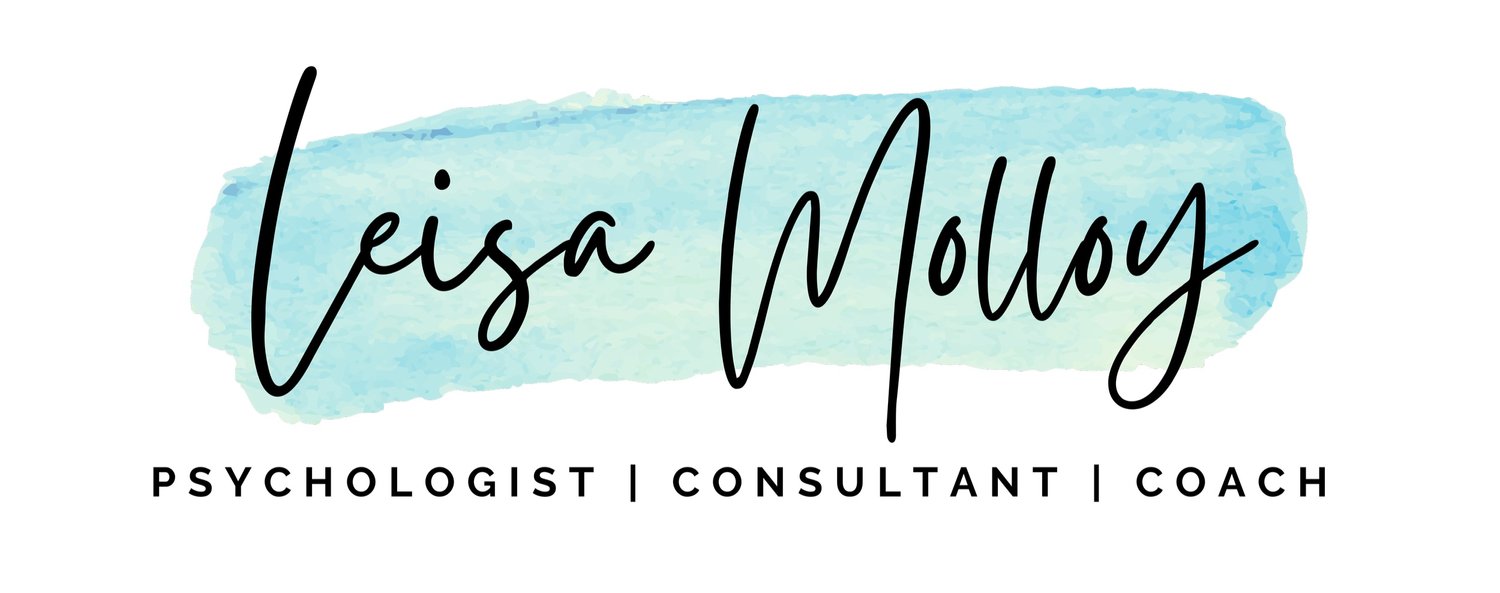On Being Wrong, Providing Clarity, and How the Brain Creates Emotions…
Every month I send out a newsletter including resources, freebies and insights for leaders who want to be more skilled, self-aware and ‘human’ in their approach to handling relationships and navigating important workplace conversations. Most include topics relating to trust, psychological safety, emotional intelligence, communication, and connection.
This is the content from the March 2021 newsletter - enjoy! And be sure to sign up for the newsletter if you enjoy this kind of content :-)
Are your leaders developing skills that promote psychological safety?
I really enjoyed this recent McKinsey article on the critical role of leadership development in creating a psychologically safe environment.
It highlights a range of specific leadership behaviours that facilitate a positive team climate, which in turn influence employee perceptions of feeling 'safe'. You'll read about the importance of creating a sense of teamwork, mutual support, and genuine concern for the welfare of team members. Other insights refer to the skills that often aren't included in leadership development programs - but perhaps should be.
You can read the article by following this link.
Are you softening tough feedback?
This article emphasises one of the key messages I also like to share in my workshops on feedback conversations – "clear is kind". And more importantly, that you can be both clear and kind at the same time.
The article includes a good summary of the commonly used SBI model (Situation, Behaviour, Impact), also referencing the idea of "feedforward" (rather than "feedback"). When used well, these approaches can help separate observations from interpretations, and create clarity around the impact of different actions or behaviours. In my personal view, the method described in the article isn't entirely effective as a 'stand alone' approach to having robust feedback conversations. Instead, I think it works best when taught alongside a few other key skills that promote open dialogue and psychological safety (e.g. deep listening, asking curious questions, communicating intent, etc.).
If you are keen to read the article you can find it here via the HBR website.
How can you respond when a low performer asks for a pay rise?
As a quick read, I quite enjoyed the practical advice shared by columnist Alison Green in this article, especially her suggestions on what to actually say in a situation like this.
Again, the key message is that being clear is actually being kind, and that the leader needs to provide this absolute clarity to their team member. If you find this useful it could be worth revisiting the "ask a manager" column in future, as Green often provides suggestions on tackling these types of issues.
You can find the Inc.com article here.
How does your brain create emotions?
As someone who is endlessly fascinated with human behaviour, I absolutely loved this interview with psychologist and neuroscientist Lisa Feldman Barrett.
It's a long discussion about the complexities of the brain, with a particular focus on how emotions are created. You'll hear about our brain's primary job in managing our body's "budget", and why this matters when it comes to understanding our emotions. You'll also hear about the difference between affect and emotions, and why people talk about emotions being "contagious". I especially enjoyed the part where the interviewer asked what we could do to avoid making incorrect inferences about other people's emotions, and Feldman Barrett responded with a simple "Ask them!".
You can find the interview here on The Knowledge Project website, or here via Spotify or Apple podcasts.
What does it feel like to be wrong?
Well, as Kathryn Schulz explains in this TED talk, it feels like being right. Until we actually realise we're wrong, anyway!
I loved this presentation on the various reasons as to why saying "Wow, I don't know...maybe I'm wrong?" is so difficult for many of us. As with a lot of human behaviour, it seems that both nature and nurture play a role when it comes to struggling with our own fallibility. Another key takeaway is that stepping outside our own "rightness" takes some practice.
It's a great video for anyone exploring the concept of intellectual humility in the workplace, and can be found here on the TED website.
A quirky quiz to identify your "advice monster"…
As you may know, a lot of my work involves helping leaders to have more robust and effective feedback and coaching conversations.
Since being published I've often integrated some of the key insights from Michael Bungay Stanier's The Advice Trap into my programs. In fact, I sometimes give away the book as a quiz prize - a sneaky way to create even more learning! :-) I love that his content makes these important topics fun and engaging, while still getting important messages across.
This short quiz has been designed to help you identify which advice monster "persona" is lurking underneath your good intentions. It includes a bit of fun while also encouraging some self reflection, with the resulting report also including some great nuggets of wisdom. Take a look if you or others are interested in becoming more "coach like" (as Michael Bungay Stanier would say). You can find the quiz by following this link.
Thanks for reading! Feel free to share with anyone who might find these insights helpful, or want to sign up and join the community.






